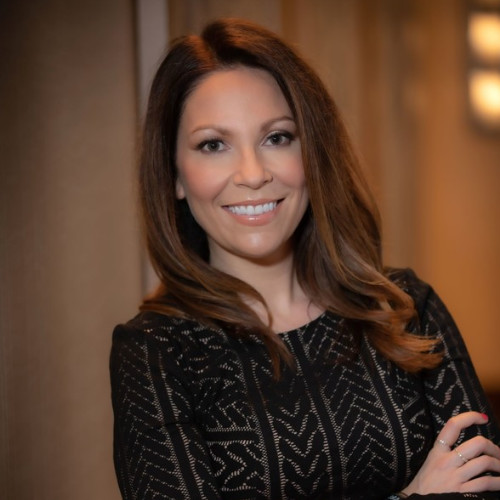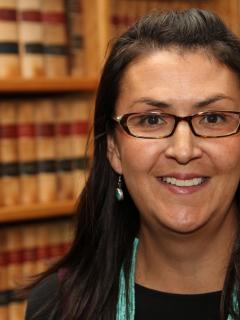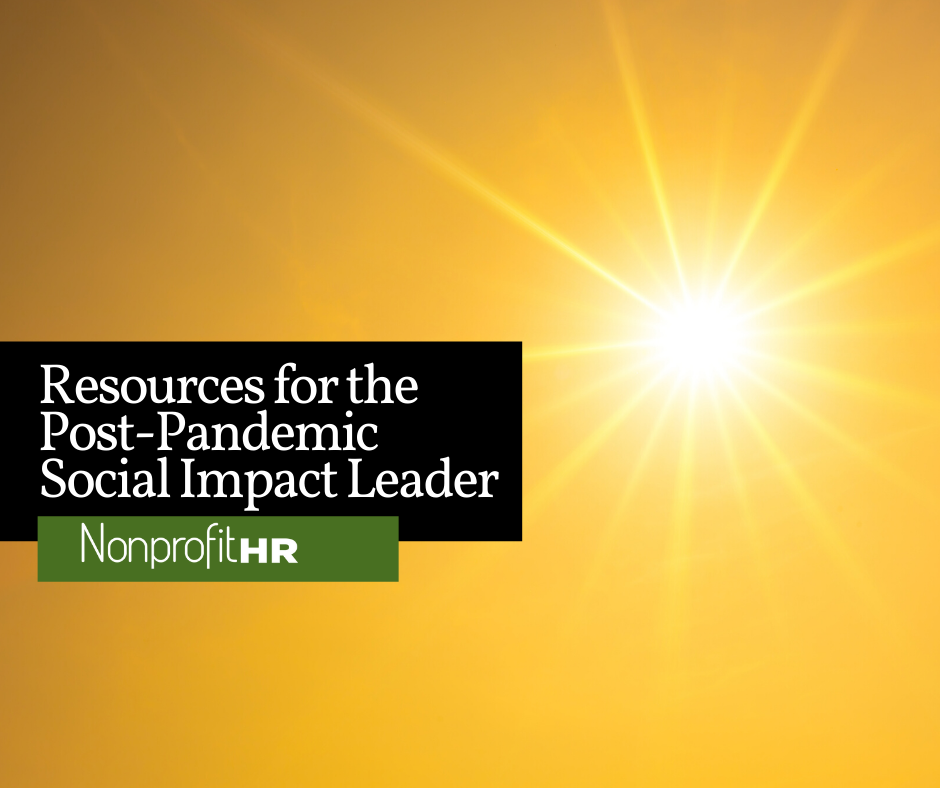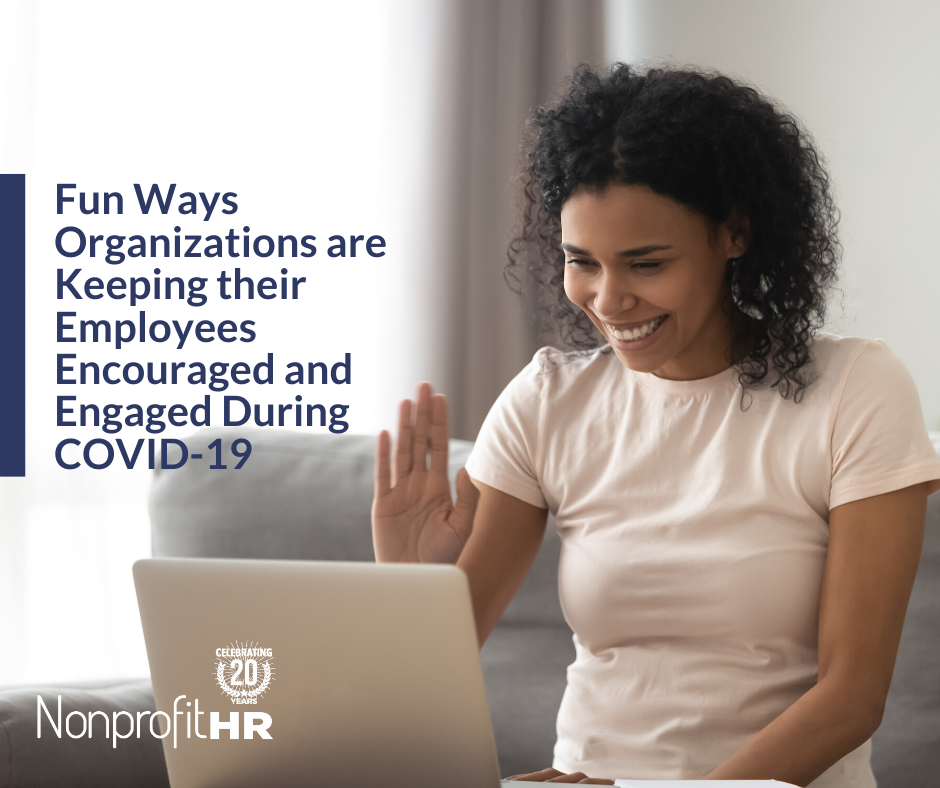WTOP: 5 ways nonprofits can…
2020 Women to Watch List
Each year, Nonprofit HR produces a list of women in the social sector who are doing amazing things for their mission-driven organizations and communities. This year, we are pleased to publish the 2020 list of women who have inspired us. We are sure they will inspire you, too!
This list, made up of 10 women professionals in social sector, shines light on the work they are doing. These women are at different career stages, have varied backgrounds and uphold wide-ranging causes. What is common, however, is their commitment to boldly evoke change in their own way.
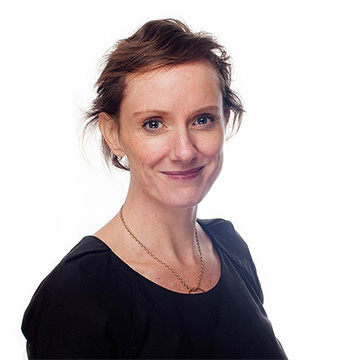
President, Earthjustice
Visit Abigail on LinkedIn
Growing climate change concerns have now focused on the efficacy and enforcement of environmental laws. This is where Abigail Dillen (@AbbieDillen) and Earthjustice come in because as their motto states, the earth needs a good lawyer. As the head of this nonprofit public interest environmental law organization, Abigail leads over 130 environmental attorneys who are specialists in the field and get results in court. These court victories have real results on people’s health, well-being, and futures across the nation and have set the stage for more environmentally-conscious business and government practices. Abbie and her team get results! From winning precedent-setting cases that prevent polluters from shifting blame to making clean energy a national possibility, her approach has proven effective. A recent win under her leadership occurred when the state of North Carolina ordered a large utility to excavate and close all its properties where toxicities had been disposed of improperly and ultimately leaked into groundwater and spilled into nearby lakes, rivers, and streams. The ruling took 10 years of litigation. Fortunately today, 11 client groups and countless communities across the country now have in place the first-ever standards to govern the disposal.
Every day, her team represents climate change cases in court prompting corporations to be more mindful of how their practices impact the environment. Abigail and her team now, and in the future, helping us all breathe easier.
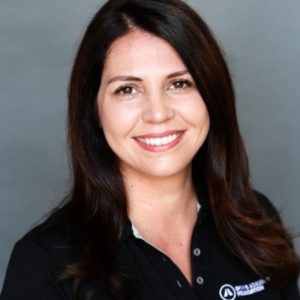
Executive Director, Mamba & Mambacita Sports Foundation
Visit Angela on LinkedIn
The sudden passing of sports legend, Kobe Bryant and his daughter Gianna Bryant touch those in and outside of the NBA world. Following the loss, the Mamba Sports Foundation adds ‘Mambacita’ to the name in honor of Gianna. Now the Mamba & Mambacita Sports Foundation, the organization remains focused on using sports as a means to gain positive impact in communities. Following the deadly 2018 Woolsey Fire in Los Angeles County, the Foundation provided a place for over 4500 to play. The Foundation has also partnered with Team Red White and Blue to reconnect America’s veterans with their communities through physical and social activity. Through programs and initiatives, the Foundation affords underserved communities and individuals access to sports programming and provides funding to underserved athletes. It also makes available programs that offer equal opportunities for young women in sports. To-date over 1000 volunteers dedicate their time to the mission which has assisted close to 10,000 youth.
As the head of the Foundation, Angela Stanislawski and her staff are charged with the legacy of empowering and inspiring self-confidence through sport. We look forward to seeing Angela and the Foundation shine in coming years.
Katy Sherratt
Chief Executive Officer, Back on My Feet
Visit Katy on LinkedIn
In January 2018, over a half million people were considered homeless in the United States. While there are many services offered to support our houseless, the long-term results still remain questionable. Bring in Katy Sherratt and Back on My Feet’s approach to developing a stronger sense of self as a way to move people from homelessness and houselessness to independence. Their website says it best “if you first restore confidence, strength, and self-esteem, individuals are better equipped to tackle the road ahead.” The Back on My Feet model rests on the self-esteem boost that comes from running and stability of community to motivate and support houseless people. But in this case, success is not quantified with space and distance, but rather by how many individuals obtain an education, employment, and housing. Katy took the mission from an early-stage startup to a sustainable organization. Her leadership has helped realize significant results in terms of social impact, individual mental well-being and employment. Members of Back on My Feet are hired at almost twice the rate of the national minimum wage (that is $13.42/hr versus $7.25/hr.). As Katy guides the organization through tweaks and refinements, it has still realized consistent double-digit financial and programmatic growth each year.
She was recognized among the ‘Female Disruptors’ Authority Magazine’s 2019 and ‘Top 20 Game-Changers’ by Women’s Running Magazine’s. Named a leader in social innovation and cutting-edge nonprofit management by The Economist’s Philanthrocapitalism program, Katy’s passion has resulted in a long list of other accolades. We cannot wait to see what new grounds for Katy and her members will break.
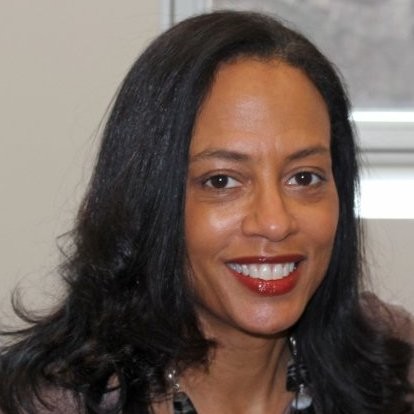
President and CEO, Black Women’s Health Imperative
Visit Linda on LinkedIn
Reproductive health inequities for Black women and the structural racism embedded in medical system have been at the forefront for years, and Black Women’s Health Imperative has been working for health equality for black women for 35 years of the story! Through comprehensive public education initiatives that promote overall wellness of Black women, their mission stands strong. Similarly, Linda Goler Blount has honed in on eliminating health disparities and inequalities in income, education, and housing. Linda’s work aims to correct medical systems that leave some groups more vulnerable than others. She has worked to decrease the incidence of cancer and cancer mortality rates among underserved populations. She also developed a nationwide health equity policy before health equity was a popular discussion. Most recently, she offered insight into why low-income communities and African Americans carry disproportionate burdens from climate change and deteriorating water infrastructure. Linda’s involvement in the Clean Water for All Coalition helps to advance policy solutions to help tackle America’s water infrastructure crisis that was highlighted in Ferguson, Missouri.
Linda’s board service reflects this commitment to health. She serves on the University of Michigan School of Public Health Summer Enrichment Program Board and the Community Health Charities Board. Previously, she lent her time to the Emory University Center for Ethics Advisory Board, the Morehouse School of Medicine Public Health Program Advisory Committee, and the University of Michigan School of Public Health Alumni Board of Governors.
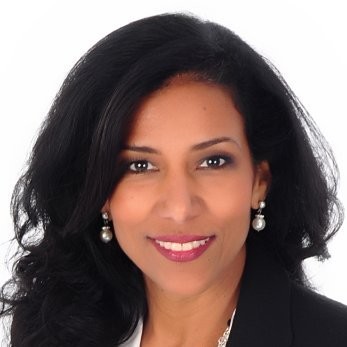
Chief Culture Officer, United Way Worldwide
Visit Lori on Linkedin
Imagine building and sustaining a high-performing culture in a network of nearly 1,800 organizations across 40 countries on the globe. Add to the mix, digital transformation, and a need to focus on individuals, and you have a day in the life of Lori Malcolm. Lori joined United Way Worldwide as the organization’s first Chief Culture Officer with intentions to reign in a broader culture for an organization supported by hundreds of locations each with its own micro-culture. This seemingly impossible task was repeated many times before by Lori. With significant experience working with restaurant franchises and a strong engineering background, she was not new to managing culture over hundreds of locations and thousands of employees. As she explains, it’s just a matter of “understanding of how a culture is brought to life through business systems, processes, and technology” while considering critical HR functions like talent management, talent acquisition, and learning. Yet, she still finds a way to see the forest and the trees: the individuals that provide the manpower for large corporations. Despite her focus on process and procedure, she does not lose sight of what makes employees human. She has been known to seek ways to heal the past hurt of employees and improve employee morale without breaking the bank. Think of closing offices between Christmas and New Year’s Day as an example. The Cornell University alumna has also served on numerous nonprofit boards and industry associations that share her commitment to helping others live better healthier lives.
In 2019, Fast Company named United Way Worldwide #5 on its annual list of the World’s Most Innovative Companies for 2019, in the nonprofit category. As the organization grows, we look forward to seeing how Lori engages with employees to magnify the impact of United Way Worldwide.
Lucy Rain Simpson
Executive Director, National Indigenous Women’s Resource Center (NIWRC)
People from all walks of life and communities have been subjected to domestic violence. But Lucy Rain Simpson is heading up the national mission to end violence against American Indian, Alaska Native, and Native Hawaiian women. For more than 10 years, Lucy has focused her efforts on addressing the violence against Native women in the United States. The violence has reached unprecedented levels and has been called an epidemic on tribal lands and in Alaska Native villages. More than 80% of American Indian and Alaska Native women have experienced violence and over half have experienced sexual violence. Leading a staff and board of directors of indigenous women to develop solutions and deliver services to Native women, Lucy rests on a wealth of legal and public policy experience. One such solution is the StrongHearts Native Helpline which is a resource that provides the cultural-awareness and support needed by Native Women.
Lucy’s legal background also helps her to mobilize her organization to fight for better legal protections for indigenous women. For example, the lethal threat of guns in the home pose a greater threat for families, as guns are involved in over one-third of homicides against Native women.
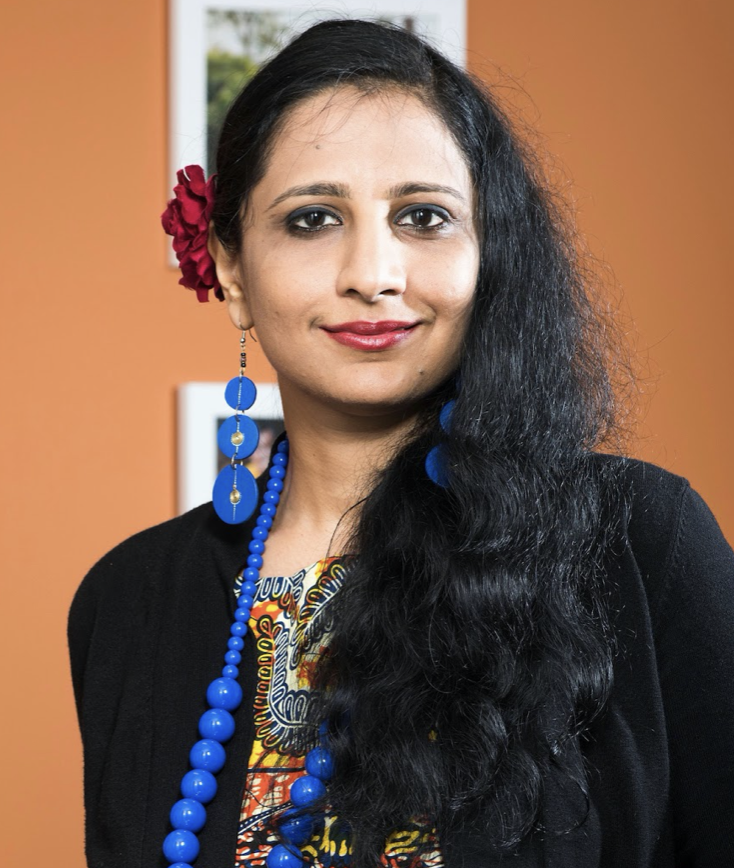
Co-Founder and Chief Collaboration Officer, Solar Sister
Visit Neha on Linkedin
@LightSolar
Three-quarters of rural sub-Saharan Africans have no access to clean power and more than 300 million African women do not have access to reliable power. Call in social entrepreneur, poet, artist, story (teller+listener), Neha Misra, to devise a solution to the gendered challenge of extreme energy poverty. Neha co-founded the innovative start-up social enterprise, Solar Sister, to not only implement solutions to extreme energy poverty but also empower women in Africa. Why is Neha motivated to focus on women to help solve our energy challenges? Studies show that Women are most affected by climate change and reducing the gap of access to electricity has been shown to involve energy justice, climate justice, and women’s rights movements. Solar Sister uses an entrepreneurial model of energy service delivery and takes intertwined areas of energy access, climate change, and human development to empower women to chart the course of their lives. Women are then able to mobilize communities to improve renewable energy access for the poor. Solar Sister’s success to date hinges on Neha’s longstanding commitment to making clean energy a reality in some of the most remote places in the world. She has worked with the Energy Reforms Group in the Regulatory Studies and Governance Division of the Energy and Resources Institute in India. She also participated in the Lighting a Billion Lives Campaign India, an initiative of The Energy and Resources Institute (TERI) that aims to replace harmful kerosene-based lighting with clean solar lighting devices to one billion people.
Under Neha’s leadership, Solar Sisters’ entrepreneurs grew from 1,786 in 2015 to 4,565 and over 1.7 million people have been impacted by the startup’s efforts in 2019 alone. The former Presidential Leadership Scholar recently announced her departure from Solar Sister after ten years. We, and others, who follow Neha are waiting with bated breath to see where she is going to land.

President and CEO, Hispanic Alliance for Career Advancement (HACE)
Visit Patricia on LinkedIn
Research has shown that Hispanic children, among other affinity groups, enter kindergarten months behind in reading and math skills, a disadvantage that often persists and grows through their K-12 education and ultimately their careers. Unfortunately, Mota experienced impacts of education and career-opportunity gaps first-hand. And fortunately, the experience sparked within her a personal mission to close these gaps by contributing to the academic and professional advancement and empowerment of Hispanics. After co-founding a non-profit early in her career and serving on various nonprofit boards and committees Patricia is now at the helm of the HACE. @PatriciaMota77, has raised over $1.5 million to increase her organization’s capacity and to pave the way for more access to meaningful career opportunities by delivering professional development, resources, and networks. In addition to increasing HACE’s operating budget by close to 70%, in just about 2 years, Patricia’s leadership also led to higher membership (67%) and several new initiatives that have impacted the lives of over 25,000 students and professionals. New programs developed under Patricia’s leadership include a leadership program for women called Mujeres de HACE, El Futuro, a career development program for high school students, and a pilot of the HACE Leadership Academy, which is a three-day program designed to transform high-potential Latino professionals into high-performing leaders. Her accolades come as no surprise. She was awarded Coca-Cola and Latino Magazine’s Brava Award in 2018, the Making it Better Chicago 2017 Top Latina Influencer Award, and the Proud to be Latina Soy Poderosa Award in New York in 2016.
Patricia’s dedication and passion have resulted in a strong history of serving the Latino community. We are amazed by what she has done already and more excited to see what is to come.
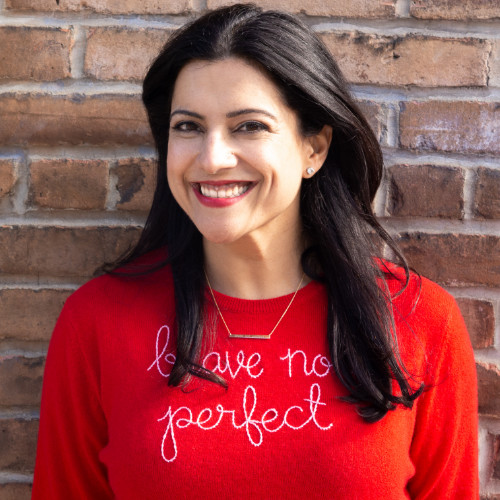
Founder and CEO, Girls Who Code
Visit Reshma on LinkedIn
In 2010, Reshma Saujani made history as the first Indian-American woman to run for U.S. Congress. She challenged long-standing Democratic Representative Carolyn Maloney in a district that was very left of her approach. Reshma (@reshmasaujani) raised almost twice as much money as her opponent and secured several high-profile endorsements. But instead of walking away with an election win, she walked away with two revelations. The first, was the idea for a program to help girls code. During her campaigning for the House seat, Reshma noticed that many of the schools along her campaign route had their fair share of boys and a dearth of girls in computer science classrooms. After her campaign ended, Reshma set her sights on a new mission. That mission has since gained national recognition and is known to many as Girls Who Code. The nonprofit aims to close the tech gender gap, which is expected to increase in coming years, and build the largest pipeline of future female engineers in the United States. Reshma determined that by teaching high school girls, the segment most at-risk for abandoned STEM fields, to code they would be able to level the playing field in the tech industry. Girls Who Code teaches technical computing skills to include programming, robotics, and web design. The effort has caught the attention of a number of tech giants including AOL, AT&T Google, and Microsoft that have sponsored initiatives. And, companies like Twitter and Facebook help to make practical exposure to the field a reality by hosting sessions or visits.
Reshma’s second revelation, and what helped her to start Girls Who Code, was around gendering of bravery. In a recent article, she stated, “bravery in our culture right now has become a privilege for men.” As she practices bravery, we can’t wait to see what she comes up with next.
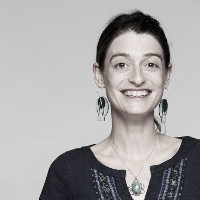
Co-founder and Executive Director of Sustainable Organic Integrated Livelihoods (SOIL)
Visit Sasha on LinkedIn
The catastrophic earthquake that hit Haiti in 2010, laid bare many of the socioeconomic issues of the island nation. But, Dr. Sasha Kramer was tuned in to the island’s under-resourced communities well before the earthquake hit. In 2006, and along with Sarah Brownell, Sasha Kramer co-founded Sustainable Organic Integrated Livelihoods (SOIL) and built the first composting toilet in Haiti’s northern town of Milot. SOIL solves Haiti’s human rights and ecological issues in a way that confirms the inherent connection between the two. Ecological sanitation, or EcoSan, converts human waste into compost which provides a two-fold solution. SOIL’s Eco san process provides sanitation to Haitians that lack access to toilets while harvesting a supply of compost that can be used for agriculture and reforestation. SOIL has provided employment opportunities (90% of its staff is Haitian), toilet access to more than 6,500 Haitians, and transformed more than 510 tons of waste into agricultural grade compost last year.
An ecologist and human rights activist, Sasha takes a holistic and compound approach to solving issues plaguing our earth and people. She has been recognized as a National Geographic Emerging Explorer, an Architect of the Future with the Waldzell Leadership Institute, a Schwab Foundation Social Entrepreneur of the Year and an Ashoka Fellow. We look forward to seeing how Sasha continues to harvest ecological principles to address human rights issues and craft solutions that benefit the planet and its inhabitants.


























